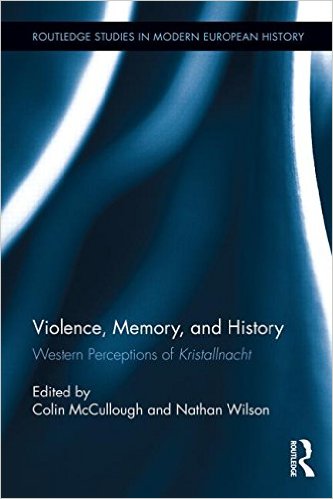Commemorating the Holocaust: The Dilemmas of Remembrance in France and Italy
by Rebecca Clifford
 Commemorating the Holocaust: The Dilemmas of Remembrance in France and Italy reveals how and why the Holocaust came to play a prominent role in French and Italian political culture in the period after the end of the Cold War. By charting the development of official, national Holocaust commemorations in France and Italy, Rebecca Clifford explains why the wartime persecution of Jews, a topic ignored or marginalized in political discourse through much of the Cold War period, came to be a subject of intense and often controversial debate in the 1990s and 2000s.
Commemorating the Holocaust: The Dilemmas of Remembrance in France and Italy reveals how and why the Holocaust came to play a prominent role in French and Italian political culture in the period after the end of the Cold War. By charting the development of official, national Holocaust commemorations in France and Italy, Rebecca Clifford explains why the wartime persecution of Jews, a topic ignored or marginalized in political discourse through much of the Cold War period, came to be a subject of intense and often controversial debate in the 1990s and 2000s.
How and why were official Holocaust commemorations created? Why did the drive for states to “remember” their roles in the persecution of Jewish populations accelerate only after the collapse of the Cold War? Who pressed for these commemorations, and what motivated their activism? To what extent was the discourse surrounding national Holocaust commemorations really about the genocide at all?
Commemorating the Holocaust explores these key questions, challenging commonly-held assumptions about the origins of and players involved in the creation of Holocaust memorial days. Clifford draws conclusions that shed light both on the state of Holocaust memory in France and Italy, and more broadly on the collective memory of World War II in contemporary Europe.

 Noemi Schory, a documentary film director and producer, was the Schusterman Visiting Artist in Residence at the Center for Jewish Studies 2013 Fall Semester. Schory taught The Holocaust in Film: Recent Israeli and German Documentaries Compared and spoke at various film screenings and events on campus and in the community. Schory produced the award-winning documentary film “
Noemi Schory, a documentary film director and producer, was the Schusterman Visiting Artist in Residence at the Center for Jewish Studies 2013 Fall Semester. Schory taught The Holocaust in Film: Recent Israeli and German Documentaries Compared and spoke at various film screenings and events on campus and in the community. Schory produced the award-winning documentary film “ Since the end of Communism, Jews from around the world have visited Poland to tour Holocaust-related sites. A few venture further, seeking to learn about their own Polish roots and connect with contemporary Poles. For their part, a growing number of Poles are fascinated by all things Jewish. Erica T. Lehrer explores the intersection of Polish and Jewish memory projects in the historically Jewish neighborhood of Kazimierz in Krakow. Her own journey becomes part of the story as she demonstrates that Jews and Poles use spaces, institutions, interpersonal exchanges, and cultural representations to make sense of their historical inheritances.
Since the end of Communism, Jews from around the world have visited Poland to tour Holocaust-related sites. A few venture further, seeking to learn about their own Polish roots and connect with contemporary Poles. For their part, a growing number of Poles are fascinated by all things Jewish. Erica T. Lehrer explores the intersection of Polish and Jewish memory projects in the historically Jewish neighborhood of Kazimierz in Krakow. Her own journey becomes part of the story as she demonstrates that Jews and Poles use spaces, institutions, interpersonal exchanges, and cultural representations to make sense of their historical inheritances. What did people hear about Kristallnacht outside of Germany in 1938 from governments and media sources? How did governments and ordinary people respond to the plight of the Jewish community there? How have lives been affected by Kristallnacht in the seventy years since its occurrence? This interdisciplinary study of erasure and enshrinement seeks to answer these questions, exploring issues of memory and forgetting (in both the material and symbolic sense), and how the meaning of Kristallnacht has been altered by various actors since 1938.
What did people hear about Kristallnacht outside of Germany in 1938 from governments and media sources? How did governments and ordinary people respond to the plight of the Jewish community there? How have lives been affected by Kristallnacht in the seventy years since its occurrence? This interdisciplinary study of erasure and enshrinement seeks to answer these questions, exploring issues of memory and forgetting (in both the material and symbolic sense), and how the meaning of Kristallnacht has been altered by various actors since 1938.